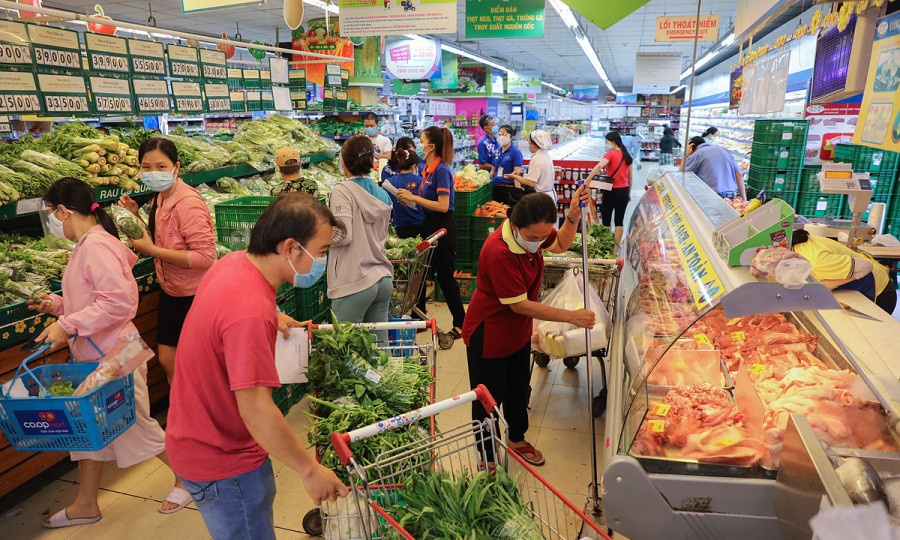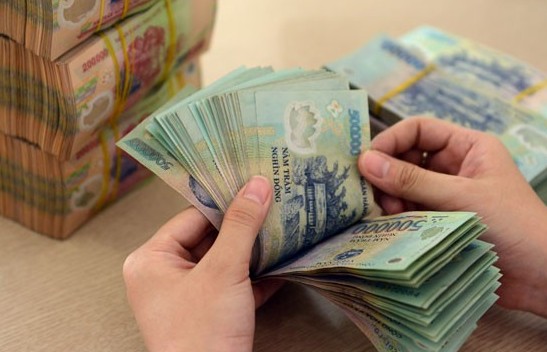Operate with caution and maintain the prices of various essential items
The MoF has collaborated with relevant ministries and branches to forecast inflationary factors, as well as develop scenarios and solutions to manage prices throughout the year. Simultaneously, the standing agency has updated the current situation on a regular basis to report to the Government, the Prime Minister, Deputy Prime Minister Le Minh Khai - Head of the Price Steering Committee, and provide appropriate solutions to control inflation.
 |
| Utilize taxes, fees, and charges to control inflation |
Macroeconomic policies have been implemented synchronously, with tax policies promptly amended, assisting in the stabilization of enterprise’s production and business activities, as well as citizens' lives, and significantly easing price pressure. Specific solutions include lowering the value-added tax (VAT) on certain goods and services, reducing the environmental protection tax on gasoline, cutting down the preferential import tax on unleaded motor gasoline, and other taxes. Market inspection and control are strengthened to quickly deal with cases of unreasonable price increases.
| Tax remissions help the livestock industry and lower production costs To assist the livestock industry in recovering from the impact of the pandemic in recent years, the Government adjusted to reduce preferential import tax rates (following the Most Favoured Nation principle, known as MFN) for some feed materials, under Decree No.101/2021/NĐ-CP to lower input costs for domestic production. As a result, the MFN import tax on wheat declined from 3% to 0%, and that on corn products fell from 5% to 2%.To support the development of agricultural production, the Government has issued numerous mechanisms and policies, such as policies to minize post-harvest losses, pest control, exemption and remission of agricultural land use tax, support for the use of irrigation products and public services; support for the production, supply, and storage of seed varieties, livestock breeds, aquatic breeds, and aquatic resource protection; and other tax policies. |
Price management has been carried out carefully. Prices of basic state-valued goods have remained stable since the beginning of the year, such as prices of medical examination and treatment services under the public service price scheme; prices of educational services.
Gasoline prices are closely regulated to global price fluctuations, but with a lower increase due to the use of flexible price stabilization combined with environmental protection tax remissions, which help to timely stabilize prices in the country; at the same time, preferential import tax (following Most Favoured Nation principle, known as MFN) for unleaded motor gasoline is reduced, diversifying import supplies.
There is still an abundance of basic consumer goods like food and food supplies. These are the items that account for a large proportion of the CPI in the basket of goods and are still being produced in a proactive manner to meet domestic and export demand.
No need to concern about the influence of rising electricity prices on CPI
The price of essential goods is forecast to fluctuate in the near future. Following a period of low prices, from the beginning of May to the present, domestic pork prices have recovered strongly on a large scale, with the price of pork reaching 61,000 VND per kilogram in many localities, up to 20% above the average price in February this year.
This is the most significant increase since the beginning of the year. The domestic pork market is expected to experience an upward trend. The reason for this is that the demand for goods is increasing while supply is decreasing. However, experts predict that the price of porks will rise sharply or slowly in the upcoming months depending on the needs of domestic consumers.
According to Ms. Nguyen Thu Oanh, Director of the Department of Price Statistics, General Statistics Office, the recent adjustment in electricity prices results in a 0.1 percentage point increase in the CPI in 2023. Inflation is anticipated to be around 4.5% for the entire year, following the National Assembly's target. Gasoline prices and gas prices are expected to fluctuate in the future; therefore management agencies are currently doing well in forecasting to timely manage and maintain the set goals.
People are looking forward to the implementation of the VAT reduction package as soon as it is passed by the National Assembly, according to economist Vu Vinh Phu. Both individuals and businesses benefit, which helps to stimulate consumption demand and keep inflation under control.
However, according to this expert, for the VAT reduction to be meaningful, state agencies' price control and market management are critical, because many businesses offer unreasonable selling prices in product composition. "The ultimate goal is that a reasonable selling price needs to be well controlled by the State for the citizens to benefit, while the CPI index is truly controlled, following the goals set by the Government and the National Assembly," proposed Mr. Vu Vinh Phu./.



















































